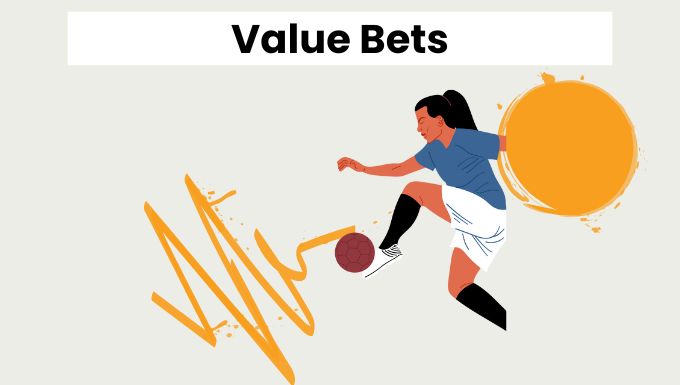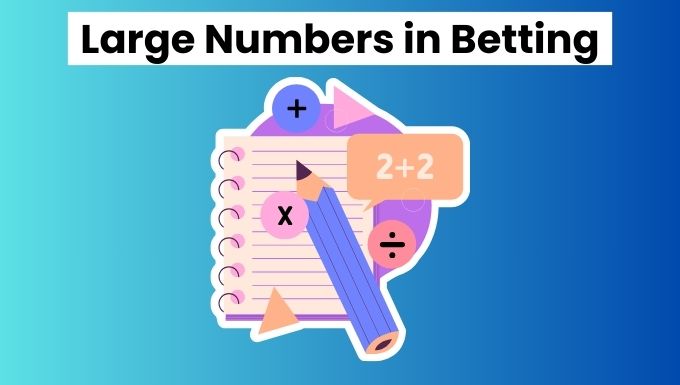Identifying value bets is one of the most exciting aspects of sports betting. As someone who has spent countless hours analyzing games and odds, I can tell you that finding these hidden gems can really elevate your betting experience. A value bet occurs when the odds offered by a bookmaker underestimate the actual probability of an event happening. It’s like discovering a treasure chest amidst a sea of ordinary wagers.
When I first started betting, I was drawn in by flashy odds and big names, but I soon learned that true success comes from digging deeper. It’s about understanding the teams, players, and even the broader context of each game. Research is crucial, and it becomes a thrilling puzzle to piece together.

The beauty of value betting is that it’s not just about luck; it’s about strategy and informed decision-making. With the right approach, you can increase your chances of making profitable bets. Whether you’re a seasoned bettor or just starting out, honing your skills in identifying value bets can make all the difference. Let’s dive into the essentials that will help you spot these opportunities and enhance your betting journey!
What A Value Bet Is(And What It Isn’t)
A value bet is one of the most important concepts in sports betting, and it’s something I always look for when placing a wager. Simply put, a value bet is when the odds offered by a bookmaker are higher than the actual probability of the event happening. For example, if you believe a team has a 50% chance of winning, but the bookmaker’s odds imply only a 40% chance, that’s a value bet. Over time, betting in these situations gives you an edge because you’re getting better odds than you should.
But here’s the thing—value betting isn’t about picking winners every time. In fact, you can lose a lot of value bets and still make a profit. It’s about making bets where the math is in your favor over the long run. It’s not about gut feelings, hunches, or betting on your favorite team. It’s also not about chasing big payouts or betting on unlikely outcomes just because the odds are high. That’s just gambling without a plan.
A value bet is also not about blindly following tipsters or public opinion. It’s about doing your own research, understanding the sport, and trusting your judgment. If you can consistently find bets where the odds don’t match the real probability, you’ll come out ahead. But it takes patience, discipline, and a willingness to stick to your strategy, even when things don’t go your way right away. That’s what value betting is really about—playing the long game.
How To Calculate Value In Betting
Calculating value in betting is one of the most important skills I’ve learned, and it’s simpler than it might seem. Here’s how I do it: First, I estimate the probability of an outcome happening based on my research. For example, if I think a team has a 60% chance of winning, I convert that percentage into odds. To do this, I divide 1 by the probability (1 / 0.60 = 1.67 in decimal odds). These are the odds I believe are fair.
Next, I compare my fair odds to the bookmaker’s odds. If the bookmaker offers odds higher than 1.67, that’s a potential value bet. Let’s say they’re offering 2.00. That means they’re giving me better odds than I think the event deserves, and that’s where the value lies. To confirm, I use the formula: (Decimal Odds × My Estimated Probability) – 1. If the result is positive, it’s a value bet. In this case, (2.00 × 0.60) – 1 = 0.20, or 20% value. That’s a great bet.
But here’s the key: calculating value isn’t about being perfect. It’s about being consistent and honest with your estimates. / It’s also not about betting on every small edge—focus on the clear opportunities where the value is significant.
Where To Find Value In Different Sports
Finding value in different sports can be an exciting adventure, as each sport has its own unique factors that can influence betting odds. Here’s where I’ve discovered value across various sports:
1. Football
- Injury Reports: Keep an eye on key player injuries or suspensions. A star player missing can drastically change a team’s chances.
- Form and Momentum: Look for teams on a winning streak or those that are struggling. Bookmakers sometimes underestimate how momentum affects performance.
2. Basketball
- Matchups: Analyze head-to-head matchups. Some teams perform better against specific opponents due to style or strategy.
- Home Court Advantage: Home teams generally have an edge. If the odds don’t reflect this, there’s potential for value.
3. Baseball
- Starting Pitchers: The starting pitcher has a huge impact on a game’s outcome. If you believe a pitcher is undervalued, that’s a great spot for a value bet.
- Weather Conditions: Weather can significantly affect gameplay, especially in baseball. A windy day can benefit hitters or pitchers, depending on the circumstances.
4. Tennis
- Player Fatigue: Pay attention to players who have had a long tournament run. If a top player is fatigued but still favored, there may be value in betting against them.
- Surface Preference: Some players excel on certain surfaces (grass, clay, hard). If the odds don’t reflect this, it’s worth exploring.
Common Mistakes To Avoid
When it comes to identifying value bets, there are a few common mistakes I’ve seen, and made myself, that can really hurt your chances of success. The first is betting with your heart instead of your head. It’s easy to let emotions take over, especially if you’re backing your favorite team or player. But value betting is about cold, hard logic. If the odds don’t match the probability, it doesn’t matter how much you love the team—it’s not a value bet.?
Another big mistake is chasing losses. If you’ve had a bad run, it’s tempting to try to win it all back with bigger or riskier bets. But this almost always leads to more losses. Value betting is a long-term game, and you need to stay disciplined. Stick to your strategy, even when things aren’t going your way.
A lot of people also make the mistake of betting on too many sports or markets. It’s hard to find value if you’re spreading yourself too thin. I’ve learned to focus on a few sports or leagues I know well. That way, I can spot when the odds are off because I understand the context and the trends.
Finally, don’t ignore the importance of shopping around for the best odds. Even small differences can add up over time. If you’re not comparing odds across bookmakers, you’re leaving money on the table.
How To Track Bets And Improve Overtime
Tracking your bets is one of the most effective ways to improve your skills in identifying value bets. When I first started, I didn’t realize how crucial this step was, but over time, I’ve come to see its immense value.
Create a Betting Journal:
I recommend starting a dedicated betting journal. This can be as simple as a spreadsheet or a notebook. Record every bet you place, including the date, odds, stake, and your reasoning behind the wager. This not only helps you keep track of wins and losses but also allows you to review your thought process over time.
Analyze Your Results:
Regularly review your betting history. Look for patterns—are you more successful in certain sports or types of bets? This analysis can highlight your strengths and weaknesses, guiding you toward areas that need improvement.
Set Goals:
Establish clear, achievable goals for your betting. Whether it’s a specific profit target or a percentage return on investment, having goals keeps you focused and motivated.
Stay Informed:
Keep learning! Follow sports news, read analysis, and engage with betting communities. The more knowledge you gain, the better equipped you’ll be to spot value.
Be Honest with Yourself:
Finally, be honest about your performance. If a certain strategy isn’t working, don’t be afraid to pivot. Flexibility is key to adapting and improving.
Identifying value bets is all about thinking smarter, not harder. It’s not about predicting every outcome perfectly or chasing big wins; it’s about finding bets where the odds are in your favor over time. From my experience, the key is combining research, discipline, and patience. You need to understand the sport, analyze the odds, and trust your judgment, even when things don’t go your way right away.
Value betting isn’t a quick fix or a guaranteed way to get rich. It’s a long-term strategy that requires consistency and a willingness to learn from your mistakes. Tracking your bets and reviewing your performance is crucial because it helps you see what’s working and where you need to improve. Over time, this process sharpens your ability to spot real value and avoid costly errors.
At the end of the day, value betting is about playing the odds, not the game. It’s about making calculated decisions and sticking to your plan, even when it feels tough. If you can do that, you’ll give yourself a real shot at coming out ahead. It’s not easy, but it’s worth it.


